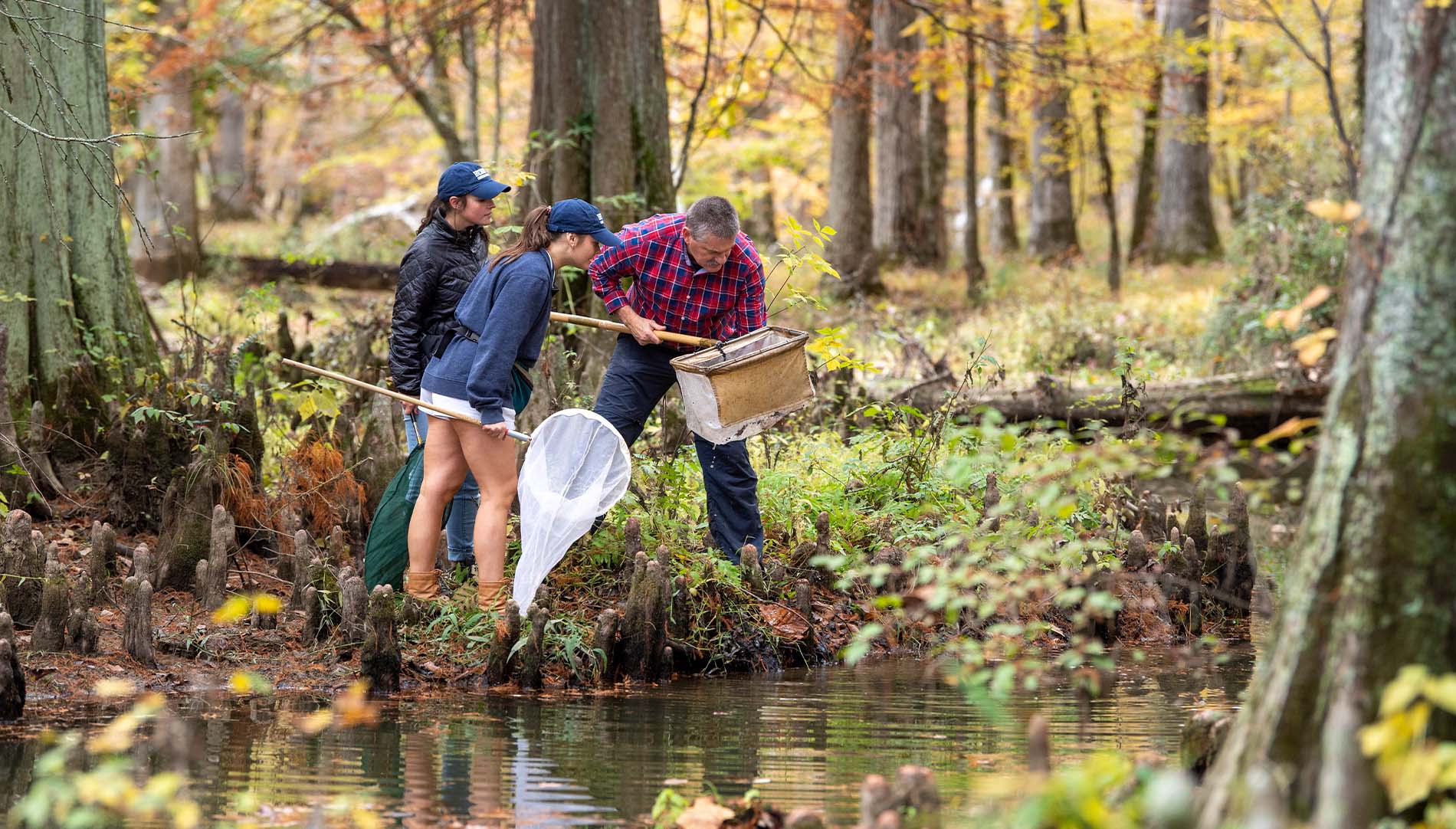Employers say yes!
Did you know that 41% of US employers are “much more likely” to hire someone with research undergraduate experience? Of that 41%, a higher percentage of younger employers valued research experiences more than previous generations. In other words, tomorrow’s leaders care about undergraduate research. Getting involved will not only make you more employable but will also prepare you for your future career.
What is Undergraduate Research?
Research is investigating a question that adds new understanding to a field of study in a systematic way. Experts or university faculty who have knowledge in a certain discipline usually conduct research. Undergraduate research is simply when undergraduates join an ongoing research project or suggest new questions to study.
Not all undergraduate research happens in traditional labs. For example, Katelyn Kosten’s physics research used telescopes, historical data and a tool she built to measure planets. Similarly, Berry’s environmental science students frequently participate in undergraduate research connected to the waterways and systems in local areas.
In another unique research experience, Brooke Hansbrough ’23 analyzed Georgia Governor Brian Kemp’s temporary state gas tax halt during a pipeline hack. She investigated whether it resulted in lower prices for consumers. Whatever your passion, there are undergraduate research opportunities that apply to your career.
Why is it valuable?
Some students think research sounds interesting but aren’t sure how it will be valuable to their employment. In response, several professors explain the impact of research on student careers.
Personal Skills
Professor of Biology Bruce Conn describes students pursuing medical school and other non-research-based professions and explains important benefits:
“No matter what your future career will be, you will use the problem-solving, creativity and teamwork that you learn in undergraduate research. College is about academic skills, but it’s about learning to work in a team and get along with others. If you’re dealing with a complex problem, you can’t manage the workload alone.”
“You also need other people’s creativity,” continues Conn. “They will come to the same problem with a different set of eyes and experiences. Working together with a mentor helps you value those diverse perspectives. The best new discoveries come from new approaches. Research teaches you the value of listening and blending your goals with others.”
Professional Skills
Associate Professor of Environmental Science and Studies Zachary Taylor adds: “Being involved in new discoveries is a powerful experience. Students are part of learning something for the first time ever, which is exciting. They take ownership and become real experts in a field.”
Associate Professor of Environmental Studies & Anthropology Brian Campbell explains research pushes students to develop other skill sets as well
“The work we do on campus is not meant to stay here,” says Campbell. “Students become experts so they can make a difference while gaining leadership skills. When they leave Berry, they know how to plan for, speak to and manage a public group. They are strategic responsibility delegators. My job is coaching them to be community leaders and helping them build confidence.”
Building Blocks for a Future
In summary, students gain more from research than just honing lab skills. The American Association of Colleges and Universities’ most recent research on what matters to employers found they hire graduates who have:
- Critical thinking skills
- Ability to work effectively in teams
- Application of knowledge/skills in real-world settings
- Digital literacy
- Ability to demonstrate complex problem-solving skills
- Ethical judgment and reasoning
- Ability to communicate through writing
- Ability to locate, evaluate and use information in decision-making
- Creative thinking
- Ability to communicate/work with people from different cultural backgrounds
- Ability to communicate through speaking/presentation skills
- Ability to work with numbers and statistics
- Ability to integrate ideas/information across settings and contexts
- Civic skills/civic engagement
The good news? There is not a skill listed that students do not use when engaged in undergraduate research.
Don't Miss Out
As graduates navigate an increasingly complex job market, employers value research projects because they see the benefits. By getting involved, students both enhance their employability and lay the foundation for a fulfilling career. Don’t miss out on an undergraduate research experience that will equip you with the skills and perspective you need for the future.



